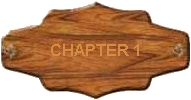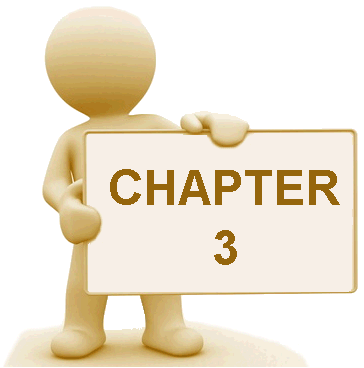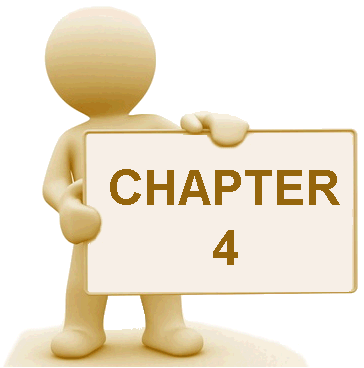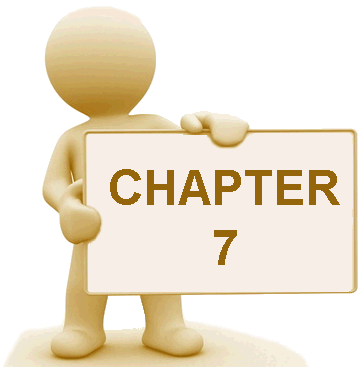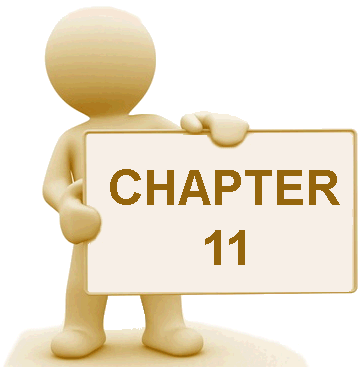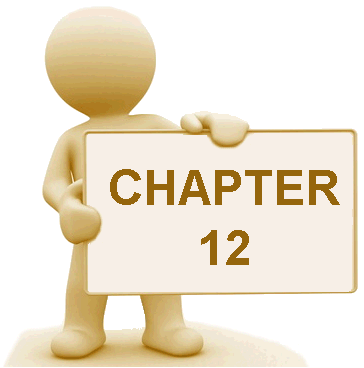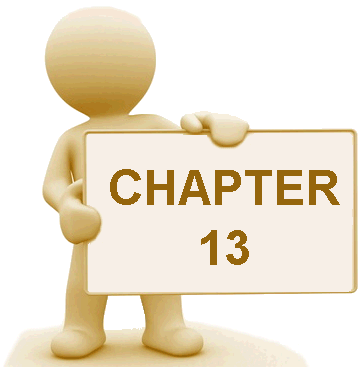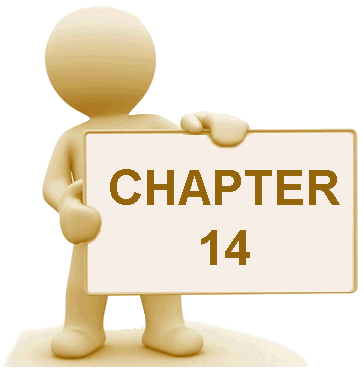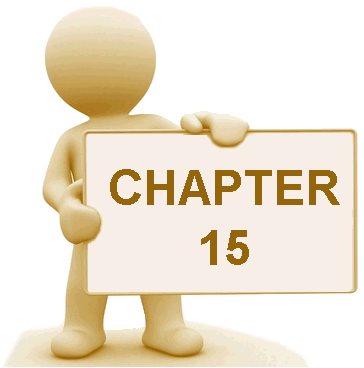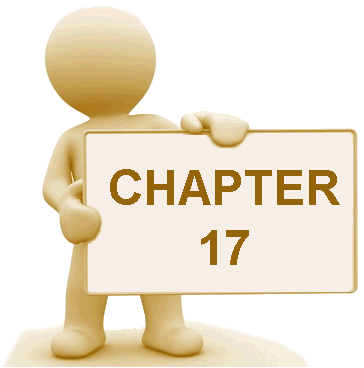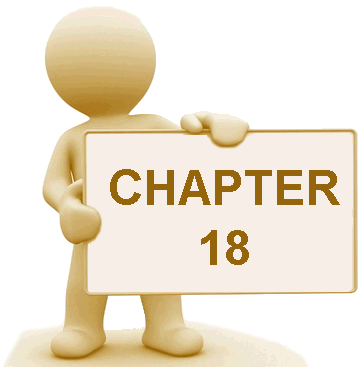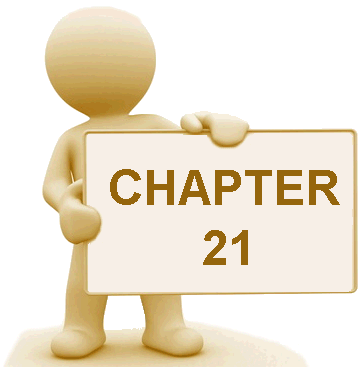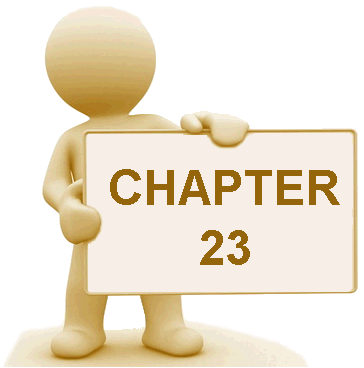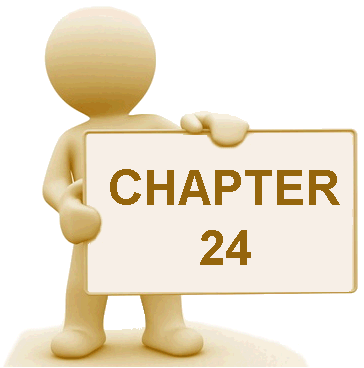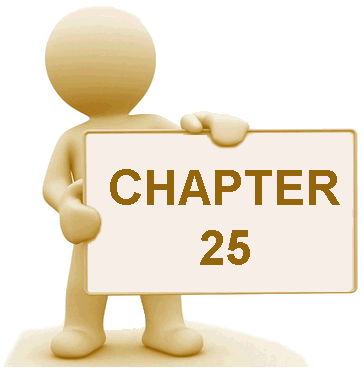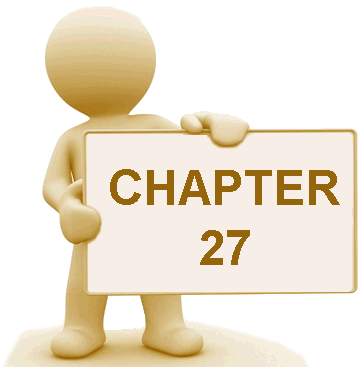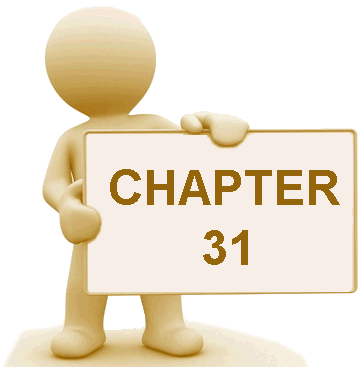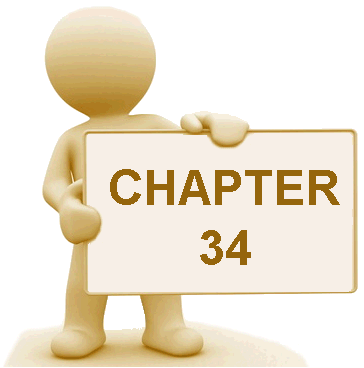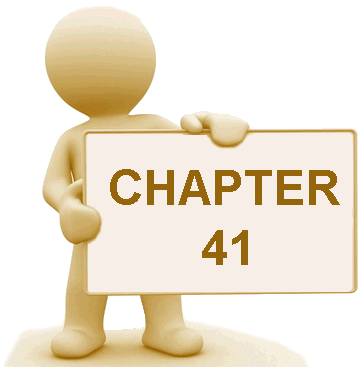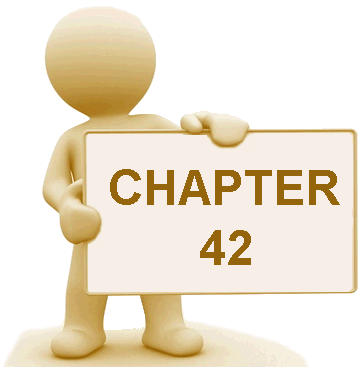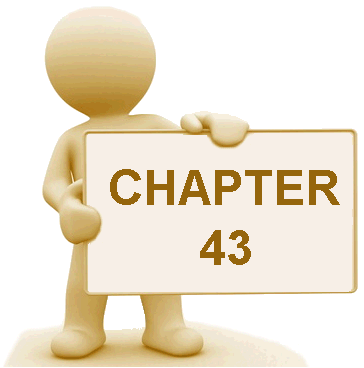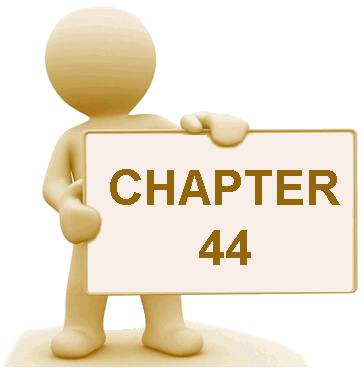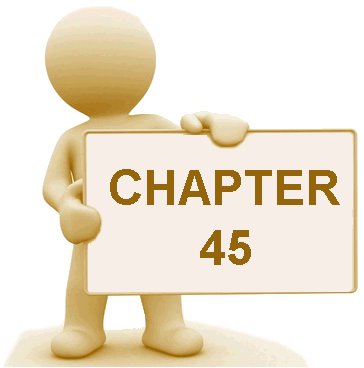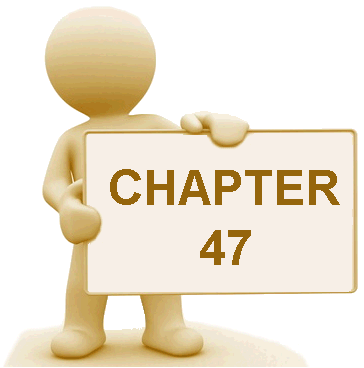 |
|
 |
Genesis - Chapter 1 - Pages 1-28
Top Of Page
Creation
- Day 1: Light (Verse 1:5)
- Day 2: Atmosphere / Firmament (Verses 1:6-8)
- Day 3: Dry Ground & Plants (Verses 1:9-13)
- Day 4: Sun, Moon, and Stars (Verses 1:14-19)
- Day 5: Birds & Sea Animals (Verses 1:20-23)
- Day 6: Land Animals & Humans (Verses 1:24-31)
- Day 7: God Rested (Chapter 2)
1 - Essay: The First Verse -- A First in Human History
1 - 1.1 In the beginning God created the Heavens and the Earth.
1 - The first verse of Genesis is, in some ways, the most important verse in the Bible.
While many Torah verses influenced history, Genesis 1:1 changed history in monumental ways.
1 - First, the verse posits a Creator of the universe.
That means, among other things, there is meaning to existence.
If there is no Creator, there is no ultimate purpose to existence, including, of course, human existence.
We humans can make up a meaning because we are the one species that cannot live without meaning.
But the fact remains that we made it up.
1 - Of course, atheists argue that believers in God made up God; therefore, God does not really exist.
But they don't always apply this rule to the existence of what they acknowledge they made up: meaning.
If what we make up (God) doesn't exist, what atheists make up (meaning) doesn't exist.
1 - If there is no God, we know there is no ultimate meaning or purpose to life: that all existence -- including, of course, our own -- is the result of random chance.
There are very strong arguments for a Designer of the world, but there are no arguments for an ultimate purpose to life if there is no God.
2 - Second, the word "created" (bara) implies nothing preexisted Genesis 1:1.
When bara is used in the Torah, it is used only with reference to God -- because only God can create from nothing.
2 - Third, everything -- with the exception of God -- has a beginning.
Prior to God's creating, there was nothing. That includes time.
Thanks to Einstein, we know that time, too, had a beginning.
God, therefore, also created time, which means God exists not only outside of nature but outside of time.
God preceds time and will outlive time.
2 - Fourth, for the first time, a creation story has but one Creator.
The moral and intellectual consequences of the Torah's monotheism have changed the world.
2 - Fifth, unlike pre-Bible creation stories, there is complete silence regarding a birth of the deity.
The God of Genesis 1:1, the God of the Bible, is not born.
2 - Sixth, for the first time in history, we are presented with a god who is competely separate from nature -- because God created nature.
3 - Seventh, for the first time in history, the Creator and the act of creation are completely desexualized.
3 - All of that is contained in this opening verse of the Bible.
3 - On the Question "Who Created God?"
3 - Genesis 1:1 is completely silent with regard to God's origins.
All prior creation stories contained descriptions of how the gods came into existence.
Therefore, Genesis 1:1 begins not with God's origins -- because He has none -- but with God acting (creating the world).
3 - For this reason, the question "Who created God?" while meaningful regarding pagan religion, is meaningless with regard to the God of the Bible.
If God were created, God wouldn't be God.
God's creator -- we'll call him God's Dad -- would be God.
But the same people who ask "Who created God?" would then ask "Who created God's Dad?"
People who ask this question would feel intellectually at home in the pagan world where this question was meaningful.
3 - The God of Genesis -- the God the Western world came to affirm -- is the First Cause, Who always was and always will be.
That cannot be said about any other ancient god.
3 - Skeptics will respond that just as the theist posits God always existed, the atheist posits the universe always existed.
But this is untenable on both scientific and logical grounds.
4 - The logical argument is this: How does the atheist explain existence? Why is there anything?
To that, the atheist has no answer.
The theist has a plausible -- not provable, but easily the most logically compelling -- answer: A Creator God.
4 - Essay: God's Existence
4 - Given the supreme importance of Genesis 1:1 -- that is, of God's existence -- to life, to meaning, and to morality; and given the Bible rests on this verse and its premise of God's existence, a brief review of the rational arguments for God's existence is necessary.
4 - The most compelling rational argument is, as noted, the question "Why is there anything?"
Science and atheism have no answer to this question.
Nor will either ever have an answer.
It is outside the purview of science.
Science explains what is. But it cannot explain why what is came about -- why something, rather than nothing, exists.
Only a Creator of that something can explain why there is something rather than nothing.
4 - It is true that the existence of a Creator cannot be scientifically proved.
Given that a Creator is outside of nature and that science can prove only that which is within nature, the fact that science cannot prove God's existence is not meaningful.
4 - Moreover, a Creator remains the only rational explanation for existence.
And if only one thing can explain something, it is overwhelmingly likely that one thing is the explanation.
The only alternatives are (a) creation created itself from nothing or (b) creation always existed.
But each of these propositions is considerably less rational than a Creator, and neither can ever be proved.
5 - Nor can science explain the emergence of life on earth.
It is as mystified by the emergence of life from non-life as it is by the emergence of non-life from nothing.
Again, only a Creator can explain that.
5 - And science cannot explain consciousness.
Why are human beings (and perhaps, to a much lesser degree, some animals) self-aware?
To the best of our knowledge, nothing else in all the universe is self-aware.
How did self-aware creatures emerge in a universe of non-awareness?
5 - To be an atheist is to believe the universe came about by itself, life came from non-life by itself, and consciousness came about by itself.
5 - On purely rational grounds -- the grounds on which I believe in God -- the argument for a God who created the world is far more intellectually compelling than atheism.
5 - It is not belief in the existence of a Creator God that most troubles intellectually honest people; it is the existence of unjust suffering -- both natural (diseases, earthquakes) and man-made (murder, torture).
In other words, the intellectually honest atheist should acknowledge that the existence of the universe, of life, and of consciousness argue for God; and the intellectually honest believer should acknowledge that the amount of unjust suffering challenges faith in a good God.
5 - However, I have never met a believer in God who has not acknowledged this challenge, whereas atheists, by definition, do not ackknowledge the overwhelming evidence for a Creator.
If they did, they would no longer be atheists; they would be believers or agnostics.
To paraphrase the American rabbi and theologian Milton Steinberg (1903-1950), the believer has to account for the existence of unjust suffering; the atheist has to account for the existence of everything else -- for the world, life, consciousness, beauty, love, art, music.
It would seem the believer has the upper hand.
5 - So, then, how do believers in the good God of the Bible rationally affirm their faith?
6 - The primary rational argumens are these:
6 - It does not seem likely that the Creator of beings who care about good and evil does not Himself care about good and evil.
6 - It does not seem likely caring beings were created by an uncaring Creator.
6 - That is, in fact, one of the reasons I believe in the God of the Bible -- because the name of God's People is "Israel," which means "Struggle with God" (Genesis 32:29).
The very Book that introduced God to humnaity invites us to fight with and even get angry with that God.
6 - Finally, I believe God is good because this Book -- the Bible -- makes such a compelling case for God's goodness.
If after reading this commentary, the reader is not persuaded the world is governed by a just and good God, I will have failed my primary task in writing this commentary.
6 - Essay: Do Science and Genesis Conflict?
6 - A major barrier to many modern men and women taking the Bible seriously is the belief that science and Genesis conflict and, consequently, that religion and science conflict.
6 - First, the notion that the Genesis Creation story must agree with science is itself untenable.
7 - In my lifetime alone, science went from positing a universe that always existed to positing a universe that had a beginning (the Big Bang).
So, in just one generation, the Torah, in describing a beginning to the universe, went from conflicting with science to agreeing with science.
But this is not necessarily a comment on the Torah because science -- to its credit, is always changing.
7 - Second, while Genesis 1 must accord with what is true, the purpose of Genesis 1 is not to teach science.
It is to teach about God, man, and nature.
That is why the Torah is eternal -- and why few scientific claims are.
7 - Among other things, Genesis 1 teaches:
- God is beyond nature (all previous gods were gods of nature or part of nature).
- Therefore, there is a reality outside of nature. And that has incomparably important ramifications for us humans. It means this physical world is not all there is.
- God is not a sexual being (all previous gods engaged in sex -- with other gods and/or mortals).
- There is only one God of humanity (all pre-existing gods were attached to one tribe, religion, or nation -- there was no god of all humanity).
8 - Continued
- God represents order versus the forces of disorder and chaos, which are the norm -- both in nature and in human society.
- God has a special role for the human being.
- God is moral and has a moral will.
- Because of all of this, there is a transcendent purpose to life.
8 - Science, on the other hand, teaches none of that.
Science teaches science, which is no small thing -- a vast number of people are alive thanks to science.
But science doesn't teach right from wrong -- or even that there is a right and wrong.
Nor does it provide ultimate purpose: Science is the study of the physical universe, which, without God and religion, is bereft of ultimate purpose.
If there is no God, we humans spend an infinitesimally tiny period of time between oblivion (before we are born) and extinction (after we die).
8 - Genesis 1 does not seek to teach science.
It seeks to teach wisdom.
While the present generation knows more science than any generation in history, I believe it possesses less wisdom than many preceeding generations.
And the biggest single reason is that it has decided God, the Bible, and religion are not necessary and that only science is.
8 - Finally, it is worth noting many scientists believe in God and the Bible.
In 2010, Oxford University published a book titled Science vs. Religion: What Scientists Really Think by Elaine Howard Ecklund, a Rice University professor of sociology.
This was her finding: "After four years of research, at least one thing became clear: Much of what we believe about the faith lives of elite scientists is wrong.
The 'insurmountable hostility' between science and religion is a caricature, a thought-cliche, perhaps useful as a satire on groupthink, but hardly representative of reality."
9 - Essay: Why God Is Depicted in Male Terms
9 - The complete desexualization of God and of religion was a radical innovation of the Torah.
In religions before the Torah and in its own time, gods were depicted as celestial men and women, and those gods engaged in sexual activity -- with human beings and with other gods.
In the Torah, God is never depicted either as a man or as a woman and is completely removed from any sexuality.
9 - Before the Torah, religion had never before been wholly removed from the sexual realm.
9 - However, the Torah does depict God in the masculine.
Hebrew is one of the few languages in the world in which verbs are masculine and feminine.
They must, therefore, agree with the noun to which they refer in gender and in number.
For example, the verb "created" in the first verse of the Torah is in the masculine and in the singular.
So, we immediately know there is not more than one God and there is no goddess.
9 - Gender-wise, the Torah had three choices in depicting God:
- Masculine
- Feminine
- Neuter
9 - We can readily rule out the third choice.
First, a neutered depiction of God is simply impossible in Hebrew.
Unlike English and most other languages, there are no neuter verbs or nouns in Hebrew.
9 - Second, the biblical God is a personal God to whom we can and must relate.
We cannot relate to, let alone obey or love, an "It."
9 - Moreover, if one wants to depict a genderless God, "he" is closer than "she."
When people hear the word "she," they immediately imagine a female.
But that is not always the case with "he," which is often used to cover an entire population.
For example, when people kill a fly, they say "I killed him," because they have no idea -- or interest in -- whether the fly was male or female.
10 - The depiction of God in masculine terms is deliberate because it is essential to the Torah's fundamental moral purposes.
10 - To understand why, we have to acknowledge three premises:
- The Hebrew Bible's primary concern is a good world.
- A good world can be achieved only by making good people.
- The primary perpetrators of evil (of a violent nature) are males.
10 - Boys Take Rules From Men
10 - When males are young, they need to feel accountable to a male authority figure.
Without a father or some other male rule-giver, young men are likely to do great harm.
If there is no male authority figure to give a growing boy rules, it is very difficult to control his wilder impulses.
11 - Males Need Male Role Models
12 - The Male Is More Rule-Oriented
12 - God Is Not Within Nature, God Created Nature
13 - Unlike the other religions of the ancient world, biblical religion never worshipped nature.
13 - God's Name
13 - The word used here for "God" is Elohim. It is a plural noun.
But the word used for "created," bara, is in the singular.
The Torah says "Elohim created" using the singular of the Hebrew verb "create."
If Elohim were plural, it would utilize the plural of the verb.
The verb therefore tells us God is a singular entity.
13 - Any number of theories have been offered to explain why God's name is in the plural.
The one that makes the most sense to me is that "God" (Elohim) encompasses all gods.
13 - The Bible Begins With The God Of All The World,
Not The Story Of The Jews
13 - The Torah doesn't begin with Jews, and God didn't begin with Jews.
Jews make no apearance in the Torah until Abraham, whose birth is related at the end of chapter 11 (verse 27).
The Torah and God are preoccupied with all of humanity, not just Jews.
14 - No other ancient national history began with the creation of the world (and I do not know of a modern national history that does so either).
14 - Disorder - The Natural State Of The World Without God
14 - 1.2 - The earth being unformed and void,
14 - Genesis 1 is about Divine Order as much as it is about Creation.
God is the maker of Order and Distinctions.
14 - Preserving God's order and distinctions is one of man's primary tasks.
But, like the unformed chaos of this verse, undoing God's order and distinctions is the natural state of man.
The battle for higher civilization may be characterized as the battle between biblical distinctions and the human desire to undo many of those distinctions.
14 - As Western society abandons the Bible and the God of the Bible, it is also abandoning these distinctions.
I fear for its future because Western civilization rests on these distinctions.
15 - 1.2 (continued) - with darkness over the surface of the deep
15 - But there is a consensus that the young earth was bombarded by collisions with other celestial bodies; a dense mixture of gases, dust, and debris enveloped the early earth; and the sun was a considerably dimmer star than it is today.
All that rendered the earth's atmosphere essentially opaque -- the "darkness" described in this verse.
15 - It is also generally believed the earth was nearly or completely covered with water from a very early point.
"Early earth was covered in a global ocean and had no mountains" reads a headline from the British science magazine New Scientist.
This is the "surface of the deep" described in this verse.
And that raises an interesting question: how did Genesis know, more than three thousand years ago, that the nascent planet was submerged in darkness and water?
15 - 1.2 (continued) - and a wind from God sweeping over the water.
15 - The Hebrew word translated here as "wind" (ruach) is the same word as "spirit," which is the word most other translations use.
15 - The more common translation therefore reads, "and the spirit of God hovered over the face of the waters."
15 - Many scholars, including Leeor Gottlieb, professor of Bible at Barllan University in Israel, understand elohim here as meaning "powerful" or "mighty."
This accords with the present translation -- "a mighty wind."
16 - God Speaks And His Will Is Done
16 - 1.3 - God said, "Let there be light" and there was light.
16 - This verse is another radical innovation in history: God's will alone is all that is needed for something to happen.
16 - Throughout history, people have understood "Let there be light" to mean "God created light."
And that is an entirely legitimate translation -- "Let there be" (yihee) can mean "Come into being."
But there is no verb here meaning "create," "make," or "form."
And that may strongly suggest another meaning.
There are scientists who believe in the Bible who understand "Let there be light" to mean that God did not create or make light in this verse; He made light appear.
16 - No light had yet appeared on earth because in earth's earliest period, the earth's atmosphere was opaque, either from clouds or cosmological dust and debris, or both.
16 - Now, as God hovered over the waters, with His words "let there be light," the atmosphere began to clear, and the light of the sun (but not the sun itself) became visible from the surface of the earth -- just as it is visible to us when the skies are overcast; we see the light, but not its source.
16 - Thus, in the opinion of Schroeder, Ross and other scientists who reconcile science with Genesis, the sun already exists (but is not seen until Day Four).
17 - Why Does God Declare His Creation "Good"?
17 - 1.4 - God saw it was good
17 - This is the first of seven occasions in the opening chapter of Genesis that states God saw what He created was good (the other are verses 10, 12, 18, 21, 25, and 31).
17 - It means the world God created was good.
In addition to meaning Creation and Order are good, it may be expressing an inherent optimism to life and existence.
That the world God created is good gives all of us who believe in the Bible a reason for optimism, even when our life is troubled.
Ultimately, this world is good, and good will eventually prevail (here or in an afterlife).
17 - If you do good work -- meaning the work was good and it was done to achieve good -- you are allowed to say you have done good.
17 - 1.4 (contined) - and God separated the light from the darkness
17 - Separating is the first thing God does after creating the world.
God is now in the process of shaping tohu and vohu -- chaos -- into order.
 - Light - Light
17 - 1.5 - God called the light Day, and the darkness he called Night. And there was evening and there was morning, a first day.
18 - Evening precedes morning for the simple and even obvious reason that darkness preceded light.
Prior to the universe, all was dark. Light needed to be created, not darkness.
18 - The description of each day -- "there was evening and there was morning" -- is why days in the Hebrew calendar begin at sunset (not midnight).
18 - The Sabbath is central to creation. It is so important, it is the only ritual commandment in the Ten Commandments.
18 - Essay: What Does "Day" Mean In Genesis 1?
18 - Nothing in Genesis appears to present as irreconcilable a conflict between science and the Bible as the claim in Genesis that the world was created in six days and the scientific claim that the universe is 13.8 billion years old.
18 - Dr. Gerald Schroeder, who taught physics at MIT and the Weizmann Institute in Israel, reconciles science and "day" in Genesis 1 in this way:
18 - "We look back and measure fourteen billion years from today back to the creation.
The Bible looks forward and sees six days from the beginning looking forward to Adam....
Two views of one reality and both are true: six days and fourteen billion years.
In an expanding universe they both are mathematically true."
19 - I will explain why "day" in the Hebrew Bible does not necessarilay mean a twenty-four-hour period.
19 - Nevertheless, "day" (yom) does not always mean "twenty-four hours."
In the very next chapter of Genesis, the Torah states: "These are the generations of the heavens and the earth when they were created, on the day God made the earth and the heavens" (Genesis 2:4).
19 - What matters is not how long it took God to create the world; what matters is that God created it.
 - Atmosphere / Firmament - Atmosphere / Firmament
19 - 1.6 - God said, "Let there be expanse in the midst of the water that it may separate water from water."
20 - The Hebrew word rakiya -- translated here as "expanse" -- is found only here in the Bible.
Whatever rakiya literally means, it is the "expanse" between the waters on earth and the waters above -- such as cloud cover.
The waters below are mayim (the Hebrew word for "water"), and waters above are sham-mayim -- which some, but by no means all, scholars believe means "water there" (sham is Hebrew for "there").
It is ultimately referred to -- as verse 8 states -- as the "sky."
20 - 1.7 - God made the expanse, and it separated the water which was below the expanse from the water which was above the expanse. And it was so.
20 - 1.8 - God called the expanse Sky. And there was evening and there was morning, a second day.
 - Dry Ground & Plants - Dry Ground & Plants
20 - 1.9 - God said, "Let the water below the sky be gathered into one area, that the dry land may appear." And it was so.
20 - When the molten earth formed, as it cooled from its initial molten state, it was relatively smooth, not like a billiard ball, but also without the deep ocean trenches of today.
The water was distributed over the entire earth. The amount of water in the oceans today would cover such a 'smooth' earth by one and half miles.
Only as the earth cooled and the continents formed did dry land appear."
20 - When the earth's tectonic plates moved, the trenches of the ocean were formed, enabling the waters that had covered the earth to recede -- thereby enabling land to appear.
20 - 1.10 - God called the dry land Earth, and the gathering of waters He called Seas. And God saw that this was good.
21 - 1.11 - God said, "Let the earth sprout vegetation: seed-bearing plants, fruit trees of every kind on earth that bear fruit with the seed in it." And it was so.
21 - Plants Before The Sun?
21 - 1.12 - The earth brought forth vegetation: seed-bearing plants of every kind, and trees of every kind on earth that bear fruit with the seed in it." And God saw that it was good.
22 - 1.13 - And there was evening, and there was morning, a third day.
 - Sun, Moon, and Stars - Sun, Moon, and Stars
22 - 1.14 - God said, "Let there be lights in the expanse of the sky to divide the day from the night and to be signs for seasons, for days and years.
22 - 1.15 - and they shall serve as lights in the expanse of the sky to shine upon the earth." And it was so.
22 - The Hebrew word for "lights" here is not the same as the word for light on Day One (verse 3).
There, the word is ohr; here it is mi-ohrot, meaning illuminators, "bodies that give light."
According to scientists who believe in the biblical narrative, this does not mean new celestial bodies were made in this verse, what was new was the clearing of the earth's formerly opaque atmosphere enabling the bodies giving light -- the sun, moon, and stars, which had been previously created -- to be visible from earth.
22 - The Sun And The Moon Dethroned As Gods
22 - 1.16 - God made the two great lights, the greater light to dominate the day and the lesser light to dominate the night, and the stars.
22 - The purpose of verse 16 is to teach humanity that the sun and moon are not deities.
22 - Deuteronomy 4:19 explicitly forbids the Israelites from worshipping the sun, moon, and stars.
22 - The world was made for the human being.
23 - 1.17 - And God set them in the expanse of the sky to shine upon the earth,
23 - 1.18 - to dominate the day and the night, and to separate light from darkness. And God saw that this was good.
23 - This is another debunking of all beliefs contemporaneous with the Torah.
The pagan world view regarded the lights in the sky as astrological signs governing the fate of the world.
In contrast, the Torah describes these lights as celestial bodies that separate night from day (and delineate time cycles -- verse 14).
In other words, God made them -- to serve His (and man's) purposes.
23 - 1.19 - And there was evening and there was morning, a fourth day.
 - Birds & Sea Animals - Birds & Sea Animals
23 - 1.20 - God said, "Let the waters bring forth swarms of living creatures, and birds that fly above the earth across the expanse of the sky."
23 - Why "Sea Monsters" Are Mentioned
23 - 1.21 - God created the great sea monsters and all the living creatures of every kind that creep, which the waters brought forth in swarms, and all the winged birds of every kind.
23 - The Hebrew taninim, translated here as "great sea monsters," refers to a sea creature worshipped by other nations in biblical times.
The Torah singles out this creature to emphasize that these animals, which were worshipped as gods, are not gods but were created by the One True God.
24 - This verse contains the second use of the word "created" (bara).
Something new was created -- the animals, the "living nephesh" ("soul") creatures.
Again, there are three things created in this chapter: The world, the animals, the human being.
24 - 1.21 (continued) - And God saw that this was good.
24 - 1.22 - God blessed them, saying, "Be fertile and increase, fill the waters in the seas, and let the birds increase on the earth."
24 - 1.23 - And there was evening, and there was morning, a fifth day.
 - Land Animals & Humans - Land Animals & Humans
24 - 1.24 - God said, "Let the earth bring forth every kind of living creature: cattle, creeping things, and wild beasts of every kind." And it was so.
24 - 1.25 - God made wild beasts of every kind and cattle of every kind, and all kinds of creeping things of the earth. And God saw that this was good.
24 - The Creation Of "Man"
24 - 1.26 - Then God said, "Let us make man in Our image, according to our likeness.
24 - Genesis 1 describes the human being -- Adam -- in two ways: Adam and Ha-Adam, "man" and "the man."
In this verse, the word is man (Adam).
In the next verse it is the man (ha-Adam).
Man may be understood to denote man-like creatures that lacked a human soul.
This man is physiologically both animal-like and man-like.
But it is not necessasrily Ha-Adam, The Man, the human being with a human soul which is a different creation, as we shall see in the next verse.
24 - Regarding the question "To whom is the verse referring when it says "Let us ... in Our image'?" there are Jewish and Christian faith answers, but there is no definitive one.
It may be the "royal we" that has been used historically by kings in referring to themselves (and by popes to this day).
Indeed, one doesn't have to be royalty; I have used this term for decades on my radio show:"We'll be back right after this break."
25 - It may connote celestial bodies such as angels.
And it may refer to the animals -- an explanation that comports with the creature "man" referred to here -- as opposed to "the man" referred to in the next verse.
25 - "For some medieval commentators," writes Orthodox Jewish writer Scott A. Shay, "[man] is both a creature descended from animals and different from them...
Rambam and Abarbanel explain that man originally resembled an animal and was created along with the rest of creation before the sixth day."
25 - Whether or not one accepts this last explanation -- which I first heard from an Orthodox rabbi -- the human life is a constant battle between the animal and the divine.
25 - 1.26 (continued) - They shall rule the fish of the sea, the birds of the sky, the cattle, the whole earth, and all the creeping things that creep on earth.
25 - The Creation of "The Man"

25 - 1.27 - And God created man in His image, in the image of God He created him;
25 - This verse seems to describe precisely what the prvious verse described -- the creation of man in God's image. But it does not.
25 - There are four differences -- each of which is highly significant:
- 25 - In the previous verse, God "makes." In this verse, God "creates." "Makes" implies something preexisting; "creates" implies something new is made.
- 25 - In the previous verse, God makes man (Adam). In this verse, God creates the man (ha-Adam).
- 25 - In the previous verse, man is made in "Our image." In this verse, the man is created only in "God's image."
- 26 - In the previous verse, no mention is made of the creation of male and female. This verse says, "male and female He created them."
26 - The Male-Female Distinction Is Part Of God's Order
26 - 1.27 (continued) - male and female He created them.
26 - "The man" is described as having been "created" as "male and female."
This is an example of the Divine Order in Creation.
The male-female distinction is part of God's order. It is that important.
26 - There are ancient and modern readers who believe this statement suggests the human being (Adam) was created androgynous (both male and female).
Such a reading cannot be reconciled with the plain text.
If Adam were created as a male and female being, the last word of the verse would not be the plural "them" -- "male and female He created them."
It would read "him" or "it."
26 - 1.28 - God blessed them and God said to them, "Be fertile and increase, fill the earth and master it.
26 - To have children is the first commandment in the Torah.
One obvious reason is the world's continuity depends on people having children.
Today, young people in many European countries and Japan are having so few children that the continued existence of some of those nations is at risk.
This phenomenon is almost exclusive to highly secular societies.
 26 - Either Man Will Rule Over Nature, 26 - Either Man Will Rule Over Nature,
Or Nature Will Rule Over Man
26 - 1.28 (continued) - and rule the fish of the sea and the birds of the sky, and all the living things that creep on earth."
26 - God grants man dominion over the animals and all of nature ("the whole earth") because man is a higher being.
He alone is created in God's image; and, though obviously a physical being, he is, like God, outside of nature.
Nature is not sacred; human life is.
27 - God intended for man to dominate the natural world ("they shall rule").
This does not mean humans have the right to abuse nature -- or to inflict unneccessary suffering on animals -- but it does mean the world was created for human use.
27 - That man is depicted as ruler over the animal kingdom and the "whole earth" means he is to rule over nature, which is in stark contrast to the pagan worldview, according to which nature ruled over man and man worshipped nature.
All the pagans could do in the face of nature's great power was offer sacrifices and perform incantations.
27 - This biblical instruction to rule over nature has profoundly influenced those societies touched by the Bible.
Among other things, it opened the way to finding cures for diseases.
In order to develop medicine, the first requirement is to understand human beings must learn how to conquer nature -- conquer, not pray to natural forces (like rain gods) or try to propitiate them.
27 - That is one reason diseases like smallpox and polio were eliminated in those parts of the world influenced by the Bible.
27 - Human progress is not possible unless humans rule over nature.
Many secular people in our time romanticize nature, perhaps not realizing -- or not wanting to realize -- that either humans rule over nature or nature will destroy humans.
Either we conquer natural diseases, or they conquer us.
either we rule over (not abuse) the animal kingdom, or it rules over us.
Until the very modern age, people everywhere feared being eaten by animals.
Most of us no longer give this a moment's thought because most of the human race has come to successfully rule over the animal kingdom.
27 - 1.29 - God said, "See, I give you every seed-bearing plant that is upon all the earth, and every tree that has seed-bearing fruit; they shall be yours for food.
28 - God's original intention was for both human being and, as the next verse makes clear, animals, too, to be vegetarian.
The theme of universal vegetarianism is returned to again by the prophet Isaiah: "The wolf and the lamb shall graze together, and the lion shall eat straw like the ox, and the serpent's food shall be earth.
In all My sacred mount nothing evil or vile shall be done, said the Lord" (Isaiah 65:25; see also Isaiah 11:6-9).
For reasons explained in the commentary to Genesis 9:3, human beings were subsequently permitted to eat meat.
28 - 1.30 - And to all the animals on land, to all the birds of the sky, and to everything that creeps on earth, in which there is the breath of life, [I give] all the green plants for food." And it was so.
28 - 1.31 - And God saw all that He had made, and found it very good. And there was evening and there was morning, the sixth day.
28 - Last Page Of Chapter 1
|
 |





